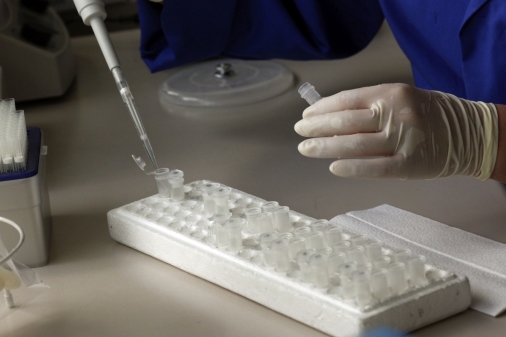
The birth of the world's first three-parent baby has been criticised as "risky, harmful and most definitely unethical" by a Christian charity.
The procedure which combines the DNA of three people led to a healthy baby being born to Jordanian Muslim parents in April. US fertility experts led by John Zhang took the nucleus of the mother's cell and inserted it into a donor's egg, which had had its nucleas removed. That cell was then fertilised using the father's sperm to create an embryo.
The method was legalised in the UK in 2015 but no other country has permitted it. Zhang's team travelled to Mexico for the procedure because "there are no rules" there.
The technique aims to stop parents who have a high risk of genetic disease passing on their faulty genes. For the Jordanian parents, the mother carries genes for Leigh syndrome, a fatal disease affecting the nervous system. The couple have had four miscarriages and lost two children at a young age.
Zhang, from the New Hope Fertility Center in New York, said: "To save lives is the ethical thing to do."
But CARE, a Christian policy charity, said it was "deeply concerned".
Director of parliamentary affairs Dr Dan Boucher said only one out of five embryos created had survived. "It is immoral to label this a success," he said.
"Whilst we are thankful that the baby has been born healthy we are deeply concerned by the risky, harmful and most definitely unethical science behind it."
Boucher said he was "alarmed" by the decision to move the procedure to Mexico.
"Mexico has not had the chance to closely review these practices yet – performing the technique there sets a dangerous precedent for reproductive tourism."
He went on to say it had crossed a threshold and set "a very dangerous precedent" for the future.
"We must remain vigilant to the latest developments in this technique and urge the government to review the very real ethical concerns around this."













